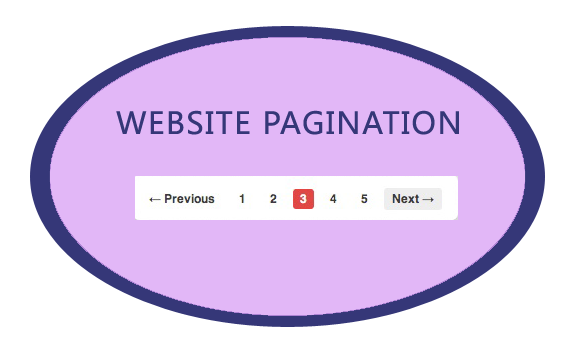About Website Pagination and how use of pagination in a website affects its seo?
Pagination refers to the practice of segmenting links or dividing content into multiple pages affecting SEO, web development as well as the experience of users. Website pagination is a common navigation technique used for web development especially on e-commerce sites.
Website pagination occurs in several formats:
● Article pagination occurs when an article spans across to more than one page.
● Gallery pagination occurs when each item in the gallery is on its page
● Forum pagination occurs where different threads span across many pages.
● Category pagination occurs when different listings (either products or anything that can be categorized) span over more than one page.
The effects of website pagination on SEO:
1. Crawling and Indexing
Segmenting a piece of content into several pages splits crucial index properties such as the anchor text data, social media shares, and incoming links. This directly affects the website rankings on the search engines since the strength of the page is divided across the series hence doesn’t increase website traffic.
2. Duplicate content issues
When using website pagination, most of the pages will tend to have similar content with the same Meta title and description across the pages. This is common when paginating a list of articles or products. When the pages lack enough content for the entries, they result to duplicated content. This effect is stronger with online stores where they use advanced filtering features when displaying products.
3. Thin content
The quality of content on paginated pages is normally very low. With such poor quality content on a website lie penalties from the Panda algorithm. However, Google has clear website SEO tips on practices that are best for website pagination.
4. Effect on the Internal link structure
Website pagination affects the initially created internal link structure for a site. This happens through the improper implementation of code hence diluting the page juice across the paginated pages. This later prevents and reduces the amount of link juice that is flowing to the paginated pages from the homepage.
Website SEO tips on implementing website pagination:
1. Website Pagination should only be used when it is necessary. Avoid it unless you have a good reason.
2. Do not over-segment content on the website since it causes user and SEO problems
3. Unless you have the experience, let the search engines help you decide
4. Apart from affecting your SEO, pagination will affect web development, user experience and the marketing strategy for a website. Understand all these effects before implementing pagination.
5. The best techniques to use when applying pagination include SEO friendly URLs, mind your link architecture and canonicals, etc.
6. Understand why it’s a must to use pagination. Use the “view all” pages to increase website traffic instead.
7. If it’s a must to use pagination, apply the rel=next and rel=prev when pagination products or articles.
Understand every type of pagination on a given website and discern which of them works best. Secondly, determine the pages in the series that are likely to increase website traffic. An article that is spanning across more than one page should allow Google to read quickly index the available keywords in the whole article. For product listings, the search engines should have a path for crawling through the entire lists.
